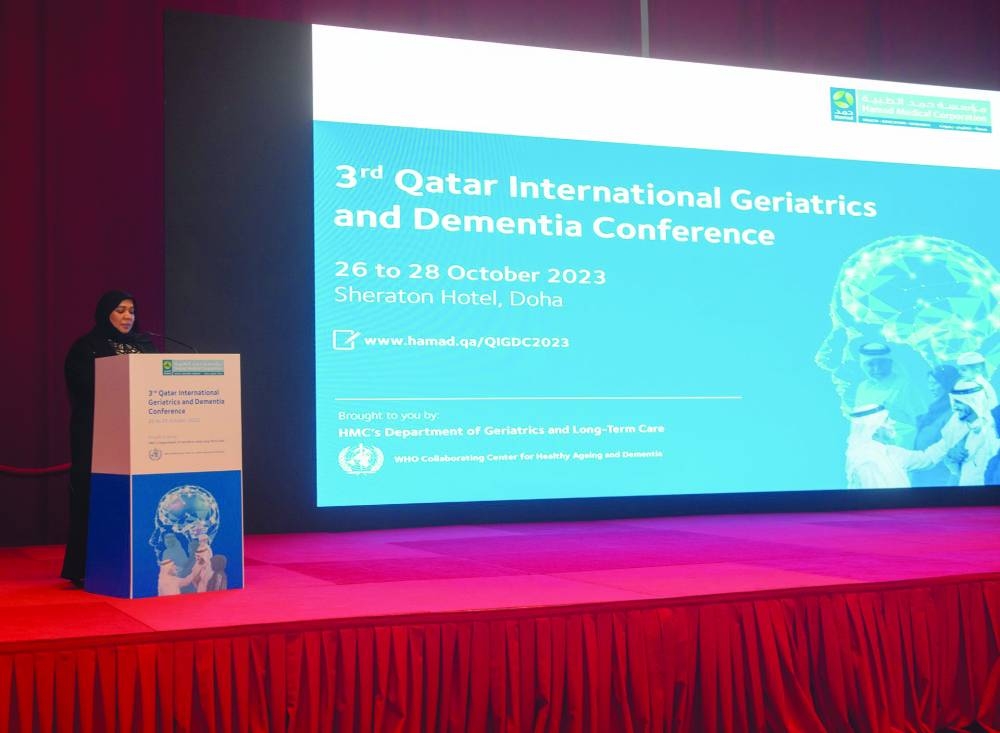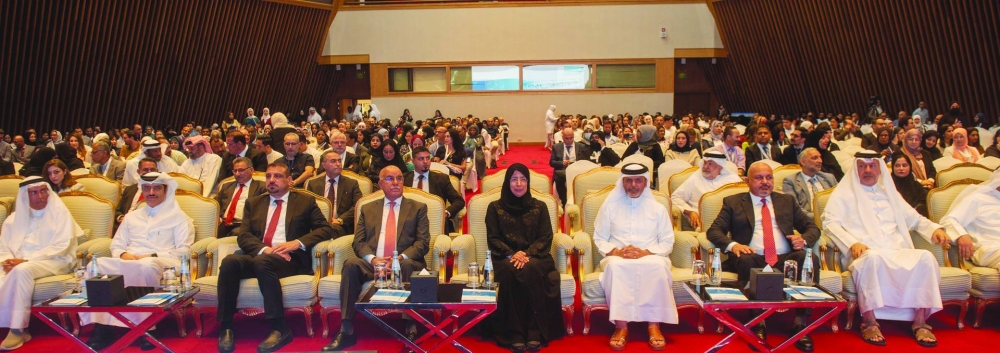The Hamad Medical Corporation (HMC) has organised the 3rd Qatar International Geriatrics and Dementia Conference, in the presence of HE the Minister of Public Health Dr Hanan Mohamed al-Kuwari, and Iraqi Health Minister Dr Saleh Mahdi al-Hasnawi.
The three-day educational conference was hosted by the WHO Collaborating Centre for Healthy Ageing and Dementia, which is operated by the Department of Geriatrics and Long-Term Care at the HMC.
The conference brought together more than 800 professional attendees from local and international healthcare institutions.
At the forefront of this event was a crucial focus on addressing the growing global challenges and needs for the development of age-appropriate care.
The scientific programme delved into wide-ranging discussions on the latest international evidence-based research, as well as diagnostic and treatment options for managing geriatric syndromes and caring for individuals living with dementia.
It highlighted the importance of integrated, inter-disciplinary care for older adults while also promoting the strategic healthy ageing agenda that aims to encourage the adoption of a better lifestyle in earlier life to support overall well-being later in life.
This includes adopting a balanced and nutritious diet, staying physically active, getting regular health check-ups, managing stress, staying socially connected, and engaging in activities that promote cognitive function.
Head of the WHO Collaborating Centre for Healthy Ageing and Dementia Dr Hanadi al-Hamad, who is also the deputy chief of Long-Term Care, Rehabilitation, and Geriatrics at the HMC, lauded the positive outcome of the inaugural scientific conference on geriatrics and dementia organised by the WHO Collaborating Centre.
“As our population continues to undergo demographic shifts with a growing ageing population, it becomes crucial for us to proactively address the challenges and opportunities associated with this trend,” she said.
“A strategic healthy ageing agenda aligns with the National Health Strategy and Qatar’s vision of a healthier and happier population,” Dr al-Hamad added. “Education is an important element in supporting this agenda, which was the impetus for this conference.”
She went on to express her gratitude for the support from the Ministry of Public Health and the Primary Health Care Corporation (PHCC).
“The ministry was instrumental in our development of the National Dementia Plan, which we launched in 2018 and are currently working on the second edition due to be published next year,” she said.
“We are also working closely with our primary care partners to expand the Memory Clinics that were developed by the department of geriatrics and long-term care at the HMC, in health centres around Qatar to facilitate easier access for older patients,” the official continued.
“(The Memory Clinics are aimed) at preventing and managing declines in intrinsic capacity, which refers to the physical and mental capacities that people need to be mobile, independent, and to contribute to their communities,” Dr al-Hamad explained. “In addition, we are planning the expansion of additional ICOPE clinics in primary care centres in the community, following the success of the pilot ICOPE clinic we launched earlier this year.”
The Integrated Care for Older Persons (ICOPE) programme is a set of evidence-based tools and guidelines for healthcare professionals to comprehensively assess and address the health of older individuals.
ICOPE covers key domains such as mobility, cognition, vision, hearing, nutrition, and social participation.
By promoting integrated care and early intervention, the programme seeks to enable older people to maintain their autonomy and quality of life as they age.
The conference followed a pre-conference two-day workshop on Promoting Healthy Ageing, which was organised by the WHO Collaborating Centre for Healthy Ageing and Dementia, together with the PHCC and World Health Organisation (WHO) representatives.
The workshop focused on Integrated Care for Older People at the Primary Health Care (PHC) and Enhancing the Long-Term Care Continuum in the WHO Eastern Mediterranean Region and was attended by healthcare officers from the WHO Eastern Mediterranean Regional Office (EMRO) who are looking at ways to enhance the well-being of elderly individuals, their families, and the communities to which they are connected.
The multi-regional workshop is aligned with the UN Decade of Healthy Ageing (2021-2030) and the Healthy Ageing Collaborative (HAC), which serves as a platform dedicated to enhancing partnerships across various sectors and stakeholders with the goal of championing the cause of healthy ageing.

HE the Minister of Public Health Dr Hanan Mohamed al-Kuwari with dignitaries and officials at the conference.

